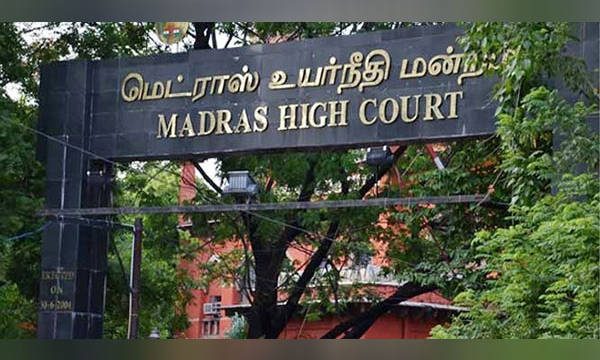
The Madurai Bench of the Madras High Court has ruled that privacy, as a fundamental right, extends to spousal privacy. It held that any evidence obtained by violating this right is inadmissible. The court made this decision while overturning a lower court's order that had permitted a husband to testify and use his wife's call data records as evidence in his divorce case.
In a 17-page order which was signed on October 30, Justice G R Swaminathan asserted that the law cannot operate on assumption that the marital misconduct is a norm nor can it allow or support one spouse snooping on the other.
The judge said, "Obtaining information about the privacy of the wife without her knowledge and consent cannot be viewed benignly. Only if it is authoritatively laid down that evidence procured in breach of the privacy rights is not admissible, spouses will not resort to surveillance of the other."
“Law cannot proceed on the premise that marital misconduct is the norm. It cannot encourage snooping by one spouse on the other. Privacy as a fundamental right includes spousal privacy also and evidence obtained by invading this right is inadmissible,” the order added.
The order was issued in response to a civil revision petition filed by a woman against her estranged husband to testify and submit her call records as evidence, that he obtained without her consent from a private mobile operator.
The husband had filed for divorce in 2019 at the sub-court in Paramakudi, alleging cruelty, adultery, and desertion by his wife.
After examining the case in detail, as it raised significant issues of fundamental rights, Justice G. R. Swaminathan examined appointed senior advocate Srinath Sridevan as amicus curiae.
The court noted that the husband had access to his wife’s mobile phone, and contacted the service provider to obtain her call records.
The judge said, "The certificate filed by the husband is no certificate at all…It is not the case of the husband that he wrote to the service provider and there was no response. The call history was downloaded from the Jio website. Therefore, only a person occupying a responsible official position in Jio could have issued the certificate."
The judge noted that there was a "clear invasion of the wife's privacy rights," and highlighted that the husband had secretly obtained her call history. Justice Swaminathan pointed out, "He (the owner) was not the owner of the mobile device or the registered user of the sim card. He had clandestine custody of the same for probably a brief while."
In his order, the judge also addressed concerns that proving marital misconduct could become difficult without such evidence. "It is not so. It can very well be established and proved by appropriate means. Interrogatories can be served," he added.

